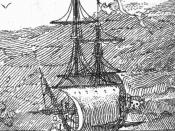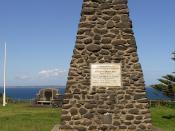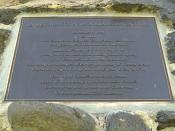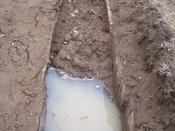In our existing age, when technological advancement and uncontrolled curiosity have made the world even smaller, it is apparent that research and science should be encouraged. Treasure hunters should be permitted to perform underwater searches for sunken vessels, not only because it would put a restrain on their business goals or funds, but also because it would hinder scientific and historical discovery.
An individual in search of the gold and treasure can be called a Treasure hunter, or salvor, but they are educated of the historical value of the shipwrecks they explore. In recent times, respect for the historical integrity of a wreck has grown significantly. According to Steven Morgan, a well-known salvor that's been in the business for over thirty years, states that in the past "you'd take what's good, and everything else was dumped overboard," but modern projects are projective of the sites. Today a salvor is an archaeologist."
This quote conveys that profit wasn't everything to these entrepreneurs.
Besides, laws like the Abandoned Shipwreck Act of 1987, and others allow states to claim a percentage of the projects, as well as the fact that private firmes often turn over the "non-valuable" - that is, non metallic and not jewel encrusted- artifacts to states, as in the case of Queen Anne's Revenge (Graphic #4). Latest technologies such as survey equipment, better diving gear, and robots have made searching even the greatest depths of the ocean possible, and it is absurd not to put to use our abilities to discover and not to use the technology we worked so hard to develop. Theses technologies are often very costly, and although some scientists and archeologists such as George Bass and Cheryl Ward argue against funding this research though projects from the shipwrecks, treasure seekers see it differently. "We have the funding," says Tom Gidius, salvor, "which is the difficulty they run into." In the age of scientific discovery and the exponential growth of knowledge, we all benefit from the work of these treasure hunters. Even the archaeologists and scientists who object to the salvors' work benefit when the artifacts are shared; they themselves dig up artifacts from American Indian burial grounds and Egyptian pyramids and other places and sell them to museums. When salvors are wreck less or careless and toss priceless items back in to the seas as happened with the De Braack (Graphic#3), these items can be recovered using the same technologies that were used to discover them.
Treasure hunters should not be prohibited from practicing underwater searches for sunken vessels simply because they seek to become rich, their discoveries benefit scientists, archaeologists, historians, and people's understanding of their culture heritage.





